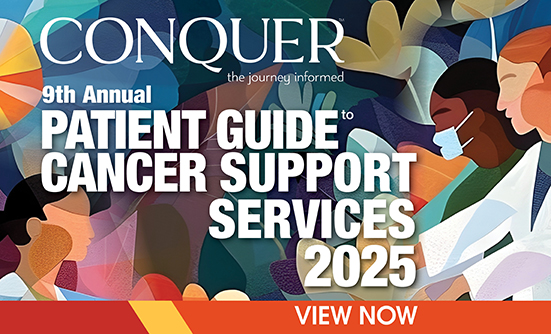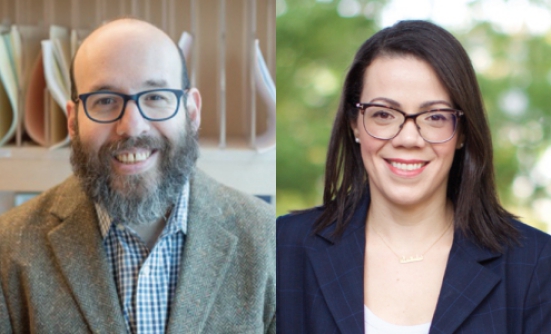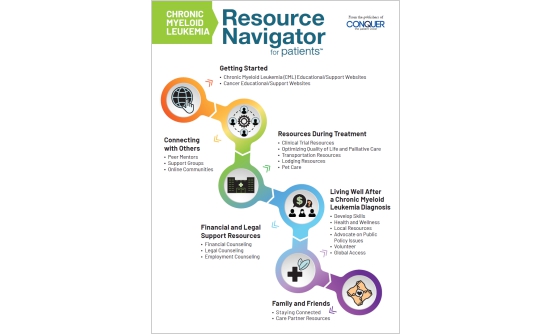At the June 2019 annual meeting of the American Society of Clinical Oncology (ASCO), 2 experts discussed the implications of new treatments for chronic lymphocytic leukemia (CLL). The blood cancer known as CLL is often diagnosed late, and until recently the initial treatment was chemotherapy alone. However, new non-chemotherapy targeted therapies have been approved by the FDA in the past few months for use as the first (or first-line) treatment for patients with CLL.

“It’s an exciting year,” said Danielle M. Brander, MD, Assistant Professor, Duke University School of Medicine, Durham, North Carolina. “Patients with CLL have more effective and more tolerable treatment options than in the past,” she explained at the ASCO meeting.
CLL Differs from Person to Person
Under the microscope, CLL cells look the same in every patient. However, the effects of the different treatments on the disease vary from patient to patient, depending on the presence of any genomic factors, such as genetic mutations (alterations), and the patient’s medical history and age.
Jacqueline C. Barrientos, MD, MS, Associate Professor, Division of Hematology and Medical Oncology, Donald and Barbara Zucker School of Medicine, Hofstra Northwell, Hempstead, New York, joined Dr. Brander in the discussion at ASCO.
According to Dr. Barrientos, about a third (33%) of the patients diagnosed with CLL don’t need treatment, because CLL is an indolent, or slow-growing, type of cancer. Therefore, in these patients, their quality of life will not be affected drastically by a diagnosis of CLL.
Another third of the patients diagnosed with CLL will need to begin treatment immediately, because of the aggressive nature of their disease, or because it was diagnosed at an advanced stage; and the last third of patients will need treatment at some point, when their disease progresses to a more advanced stage.
Targeted Drugs for CLL
Historically, patients with CLL received chemotherapy for a fixed length of time. But in patients who have high-risk markers or special characteristics of the disease—such as the 17p deletion or the IGHV mutation—chemotherapy has not been effective.
Thanks to the recent development of targeted drugs for CLL, with the advent of personalized medicine in oncology, many patients are now offered more effective treatments that target the specific type of CLL, and are associated with fewer side effects than those seen with a grueling course of chemotherapy. These new therapies target prominent markers seen in patients with CLL, such as 17p deletion or IGHV or TP53 mutation.
In 2016, Imbruvica (ibrutinib) became the first targeted drug to be approved by the FDA as a front-line treatment for CLL in patients with or without the 17p deletion. And in 2019, the FDA approved the first non-chemotherapy combination of Imbruvica plus Gazyva (obinutuzumab) for use as first-line treatment in patients with CLL, based on evidence showing that this combination helps patients to live longer, and with fewer side effects than with chemotherapy.
Extended Treatment Duration
Unlike chemotherapy, Imbruvica can be prescribed for an indefinite time, and certainly for much longer than chemotherapy, according to Dr. Brander.
“Patients take ibrutinib [Imbruvica] every day, unless there’s a side effect, or it stops working. Patients who continued [treatment] had a higher overall response rate and longer progression-free survival,” she said. For instance, patients with and without the 17p deletion are doing better by continuing to take Imbruvica for a prolonged period.

Dr. Barrientos agreed, noting that “before ibrutinib, patients without the 17p deletion lived 3 to 4 years. Now, if they are treated early, with no set term, they can live 10 to 15 years. Under this protocol, patients with the 17p deletion also increase their chance of survival,” she emphasized.
Nevertheless, although this excitement about longer cancer remission is well-justified, continuing to take any medication indefinitely may have some disadvantages for patients, Dr. Barrientos added.
“Although these drugs are well-tolerated to date, continuous therapy could produce other chronic toxicities. Drugs taken forever could have long-term side effects, and depending on a patient’s age and medical history, those could be significant,” Dr. Barrientos advised.
She explained that it’s not in human nature to take a drug every day for years on end. Mental fatigue could often creep in, and paying for a drug indefinitely could become increasingly difficult.
Dr. Barrientos suggests that depending on the patient’s unique profile—the medical history and how the disease presents in that patient with certain markers—limiting targeted therapies to a fixed length of time would give patients the benefit of the treatment, while also reducing the potential risks associated with longer duration.
“It’s a balance,” Dr. Barrientos said, “because there is no one-size-fits-all treatment protocol.”
Targeted Therapy for a Fixed Duration
The good news for patients is that in May 2019, yet another new targeted therapy became available for patients with CLL, with the FDA approval of a new combination of 2 drugs—Gazyva (obinutuzumab) and Venclexta (venetoclax)—for use as a first-line treatment for CLL.
Dr. Brander discussed the results of CLL14, a phase 3 clinical trial she was conducting that led to the FDA approval of this new combination.
“This approach bridged 2 worlds—a novel therapy given for a finite time. It will allow us to move further away from chemotherapy, while providing patients with fixed-duration therapies that produce long remission responses,” Dr. Brander said.
The CLL14 study showed that many patients with CLL can have a longer time without disease progression by using a targeted combination therapy for a fixed time rather than for an indefinite time.
Which Is Best?
However, because of the range of CLL presentations, including the stage of the disease and the types of genetic alterations, deciding which treatment protocol is best for a particular patient can be tricky.
“One of the hardest things after you first get diagnosed is that while you want to do something about it immediately, that’s not always the best course,” Dr. Brander explained.
In general, the 2 experts agree, less treatment is preferable, particularly for an indolent, or slow-growing cancer like CLL. Oncologists prefer to leave the disease alone if it is not reducing the patient’s quality of life, according to Dr. Brander.
“If the cancer can co-exist with you, and it’s not bothering you or giving you symptoms, we would rather not treat it,” Dr. Brander pointed out.
But if the disease does warrant treatment, Dr. Brander and Dr. Barrientos both recommend selecting a treatment based on the patient’s unique markers. They note that many patients find out they have CLL from their primary doctor, who may not know that they should test the patient for specific markers.
Dr. Barrientos estimates that a third of doctors are not testing patients with CLL for the 17p deletion, whose presence could determine which treatment will provide the most benefits to the patient. Because the treatments for CLL have evolved so rapidly in recent years, some physicians are not even aware of all the available options today.
She recommends that patients request a second opinion and insist on genetic testing to determine which markers they have. Seeking a second opinion in an academic medical center where advance genetic testing for specific mutations can be done and interpreted correctly is also highly encouraged.
“No 2 people with CLL present the same way,” Dr. Barrientos said, “so it’s important for patients to know everything they can about their unique form of the disease. Information is power.”
Key Points
- About a third of patients diagnosed with CLL don’t need treatment, because this cancer grows slowly
- Another third of patients will need to begin treatment immediately, because their disease is aggressive or was diagnosed late
- Finally, a third of patients will need treatment at some point, when their disease progresses to a more advanced stage
- New targeted drug combinations can now be used as first treatment for CLL instead of chemotherapy
- Deciding which treatment is best is not easy and depends on each patient’s unique disease characteristics












